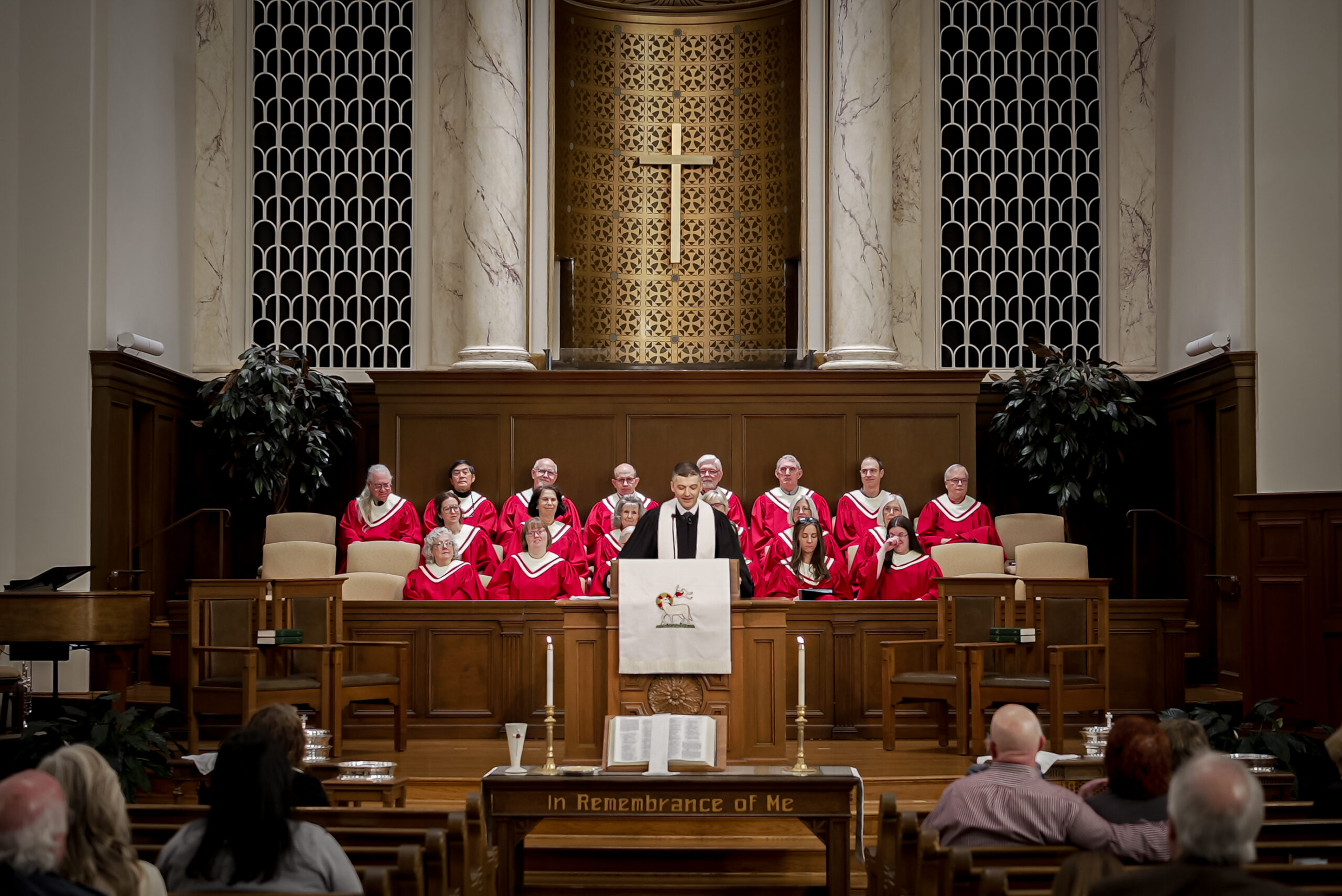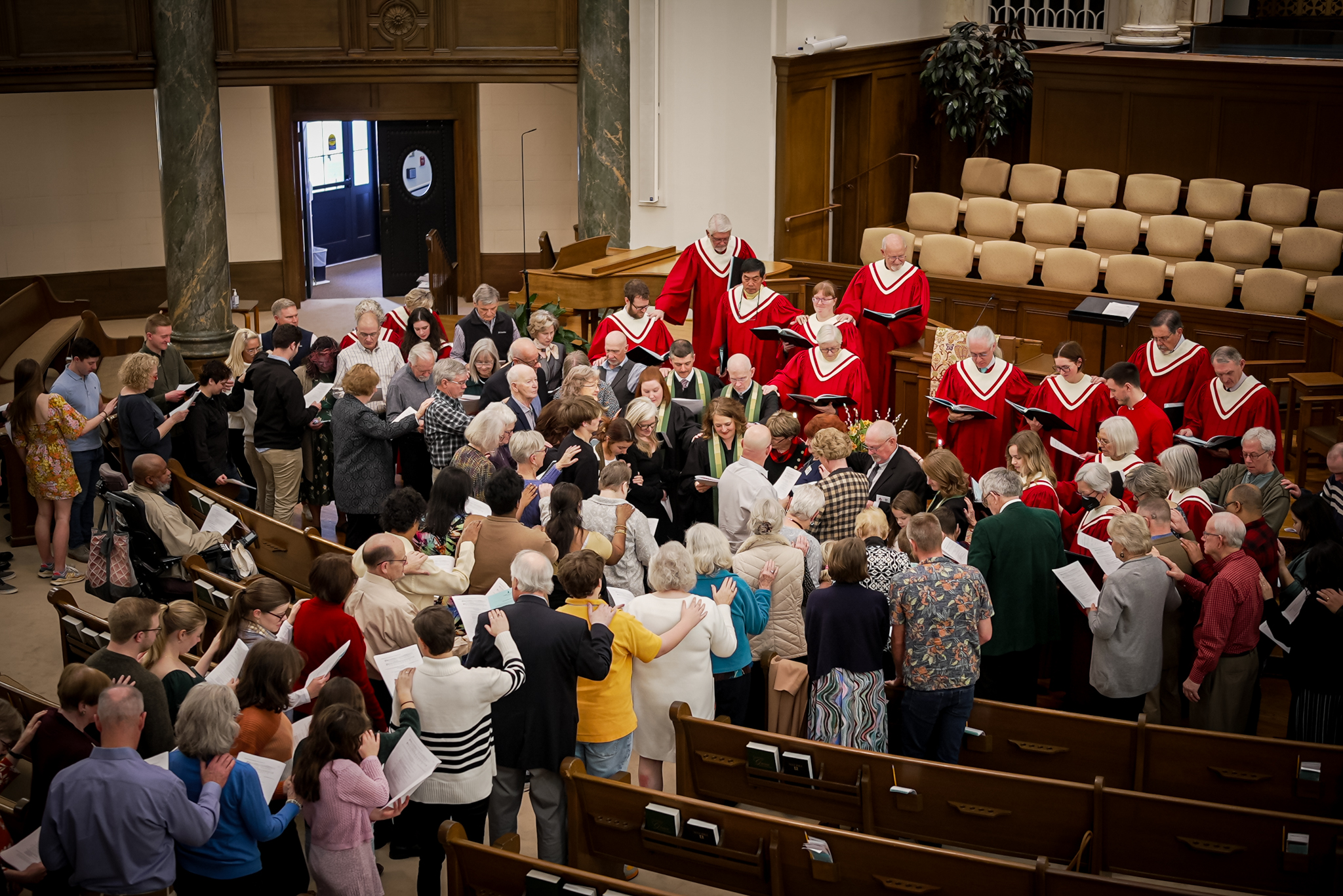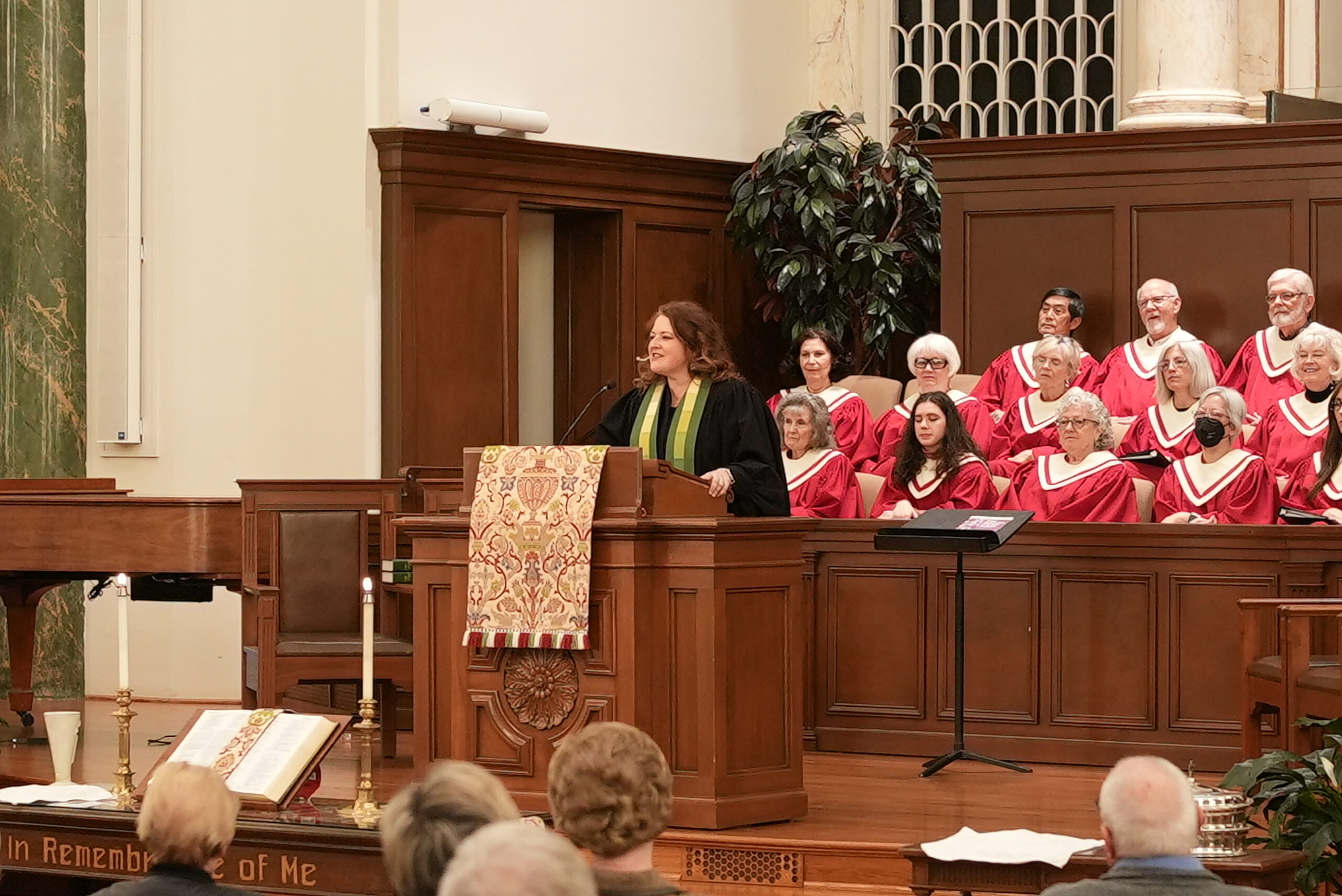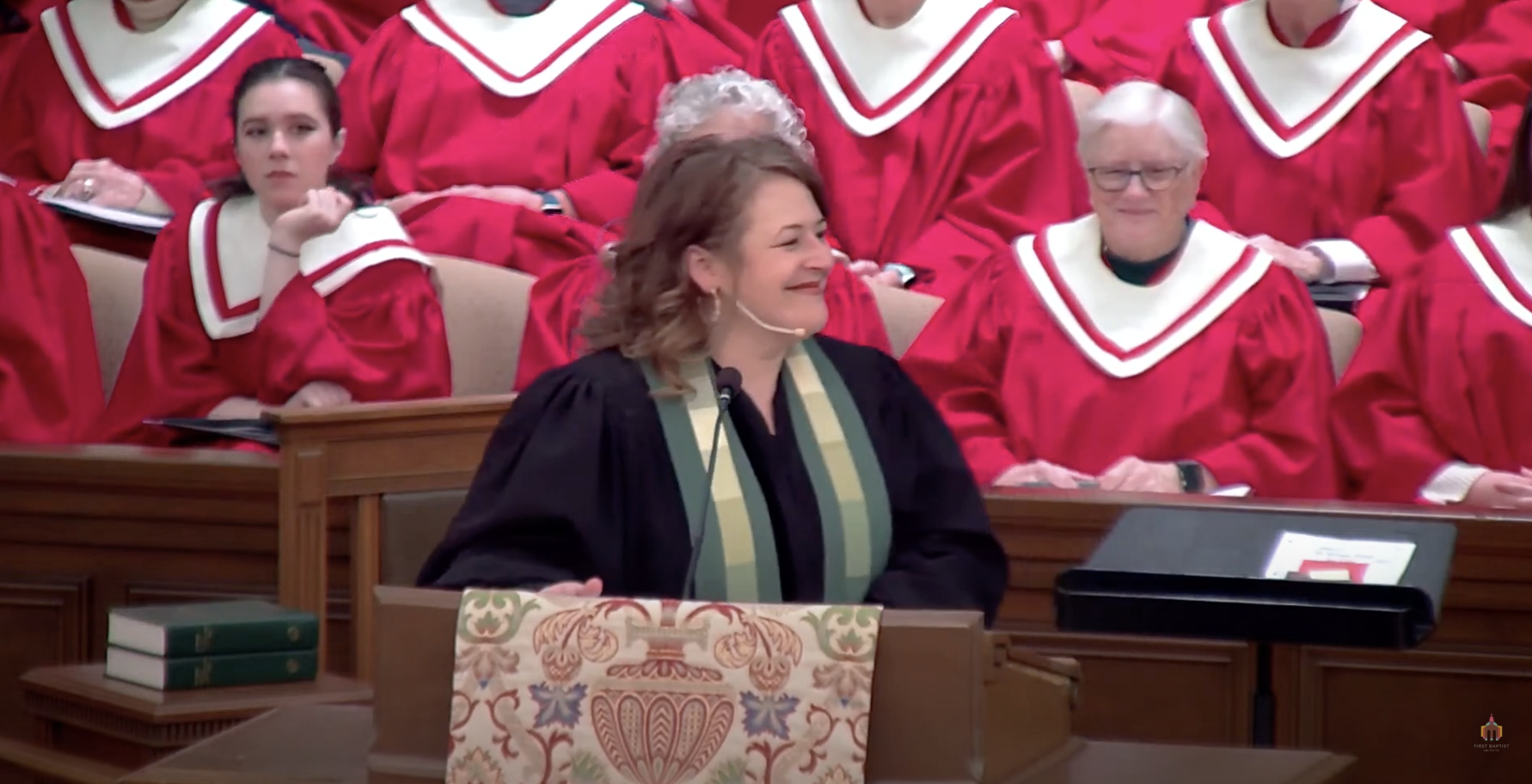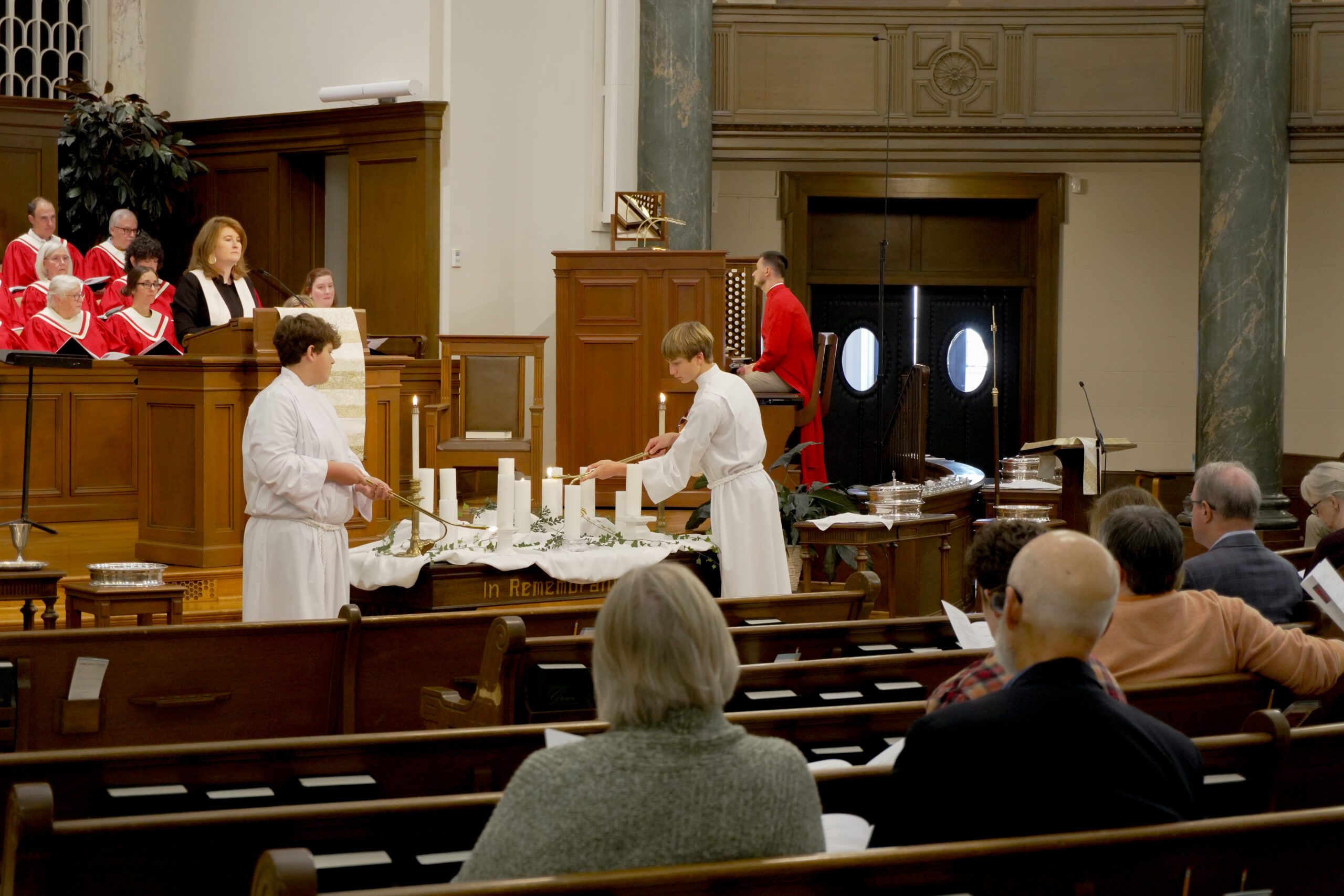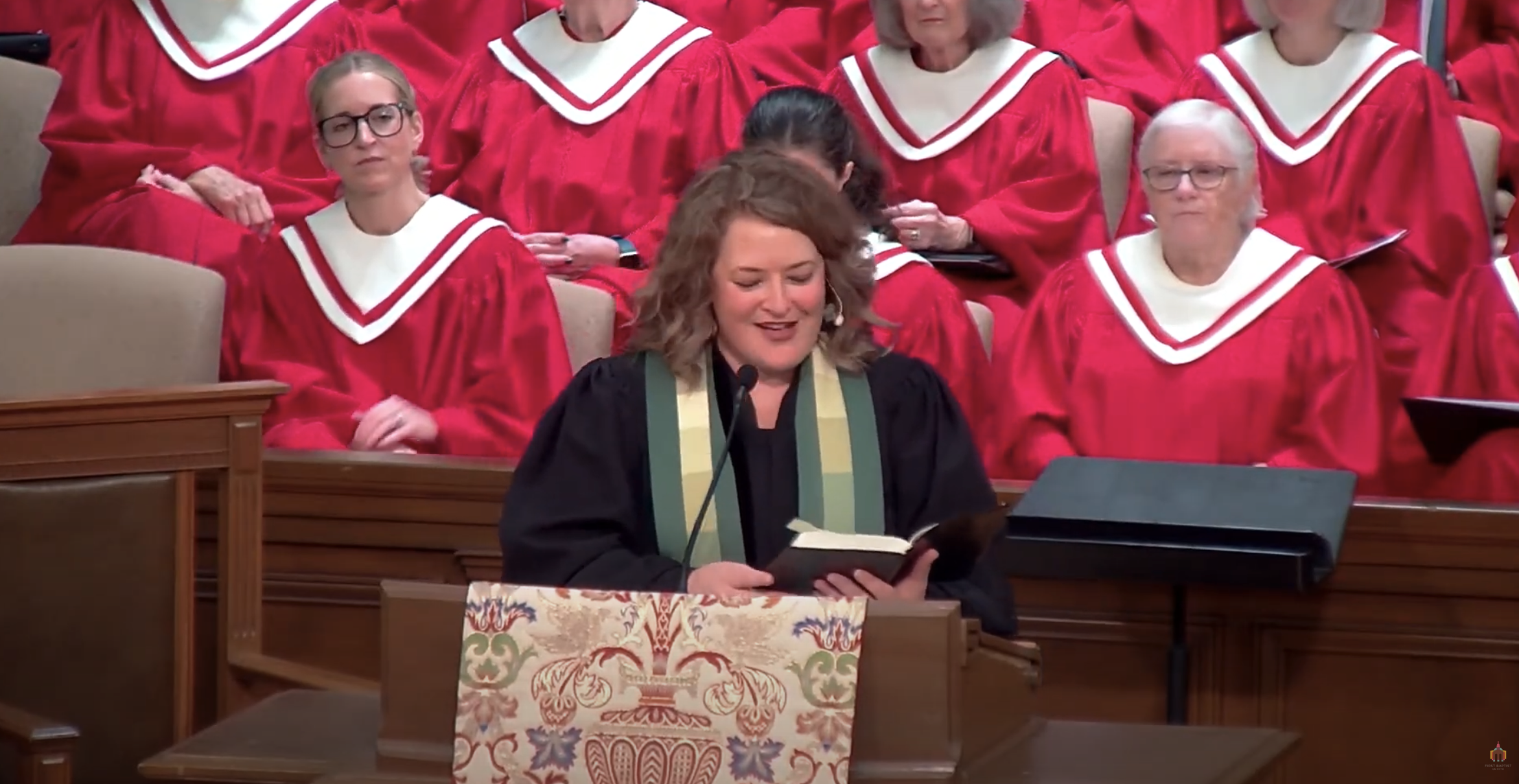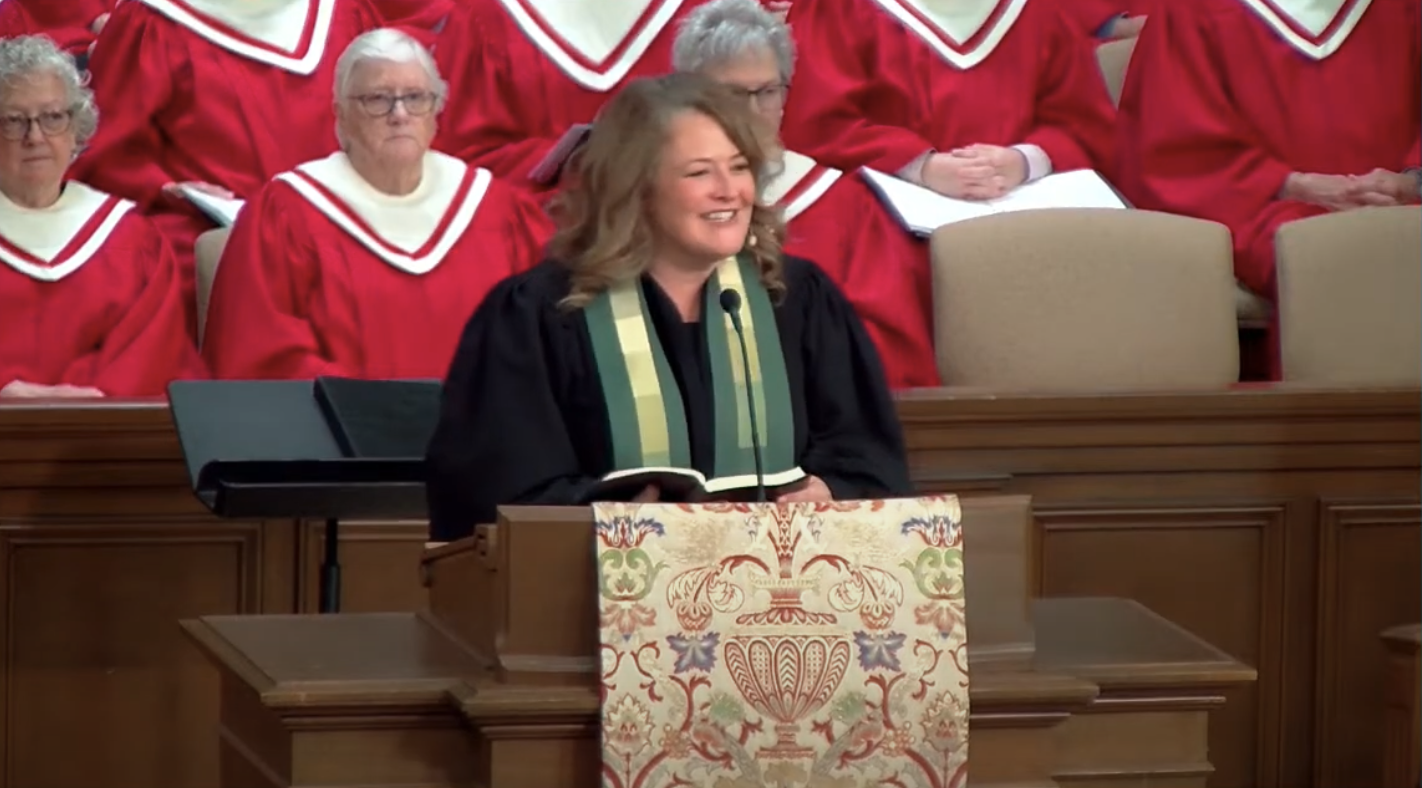I.We’re nearing the five year anniversary of one of the most ubiquitous phrases used by the modern American. No, I’m not talking about “we’re living in unprecedented times,” or its counterpart, “can we get some precedented times around here?!.” Nor am I speaking of the other important ones of 2020 like “Black lives matter” or “stay six feet apart” or “come to my virtual happy hour!” No, you know the one. You’ve said it, you’ve heard it, you’ve lived it. “You’re muted!”
In those Zoom-heavy days when physical proximity gave way to digital connectivity, it became our modus operandi to mute yourself when signing onto a Zoom call, so as to not accidentally embarrass yourself when yelling at your kids to turn down the TV or hollering out to your spouse to come help you make sure you’re muted on Zoom. Muting ourselves helped us to better hear each other, and there’s something to be said for the lesson in listening we all learned during the pandemic. But let me be a little wild and suggest it’s time to “unmute ourselves,” for there is good news to share.
II.Which brings us to Luke chapter 4. You know the story, this “hometown boy makes good” narrative of Jesus’ first sermon. Fresh out of the waters of baptism and winnowed by forty days in the wilderness, Jesus’ ministry begins back at home where it all started, in the synagogue on the sabbath day as was his custom. The buzz about Jesus had packed the place: those who were proud and fond, those who leaned in at his probing questions, and those who felt threatened by them. You can imagine the key religious leaders who stole a quick glance at one another as Jesus stepped up to the scroll, nodding in appreciation for Joseph’s boy who had shaken the wood shavings off his carpenter’s apron and gotten on with the Lord’s work.1 You can imagine the way everyone sat up a little straighter to see what might happen, expectations hanging all in the air, liberating and stifling all the same.
Jesus stood up. He unrolled the scroll. He found his place. “The Spirit of the Lord is upon me,” Jesus began, “and I’m to bring good news to the poor, release to the captives, recovery of sight to the blind, liberation to the oppressed, and God’s favor, God’s jubilee to all the land.” Isaiah’s words rolled right off his tongue, and like those times in our lives when we didn’t fully know what we believed until we said it out loud, I imagine Jesus to say these words, and then pause to let them truly sink in to speaker and hearer alike. For this first teaching becomes his manifesto: his ‘why,’ his declaration, his moral agenda, his calling wrapped into one short sermon. “Today,” Jesus concludes, the eyes of all waiting upon him, “today this scripture has been fulfilled in your hearing.” A word, proclaimed. A calling, proclaimed. A life, proclaimed.
III.Luke 4 is a preacher’s dream. (It would be a congregant’s dream if the preacher’s sermon were as short as Jesus’s!) It’s been called “the gospel in a nutshell,” and it’s launched countless years in church life, mission emphases for a conference or a special offering, thousands of books and sermons, and dissertations like the one Amy is writing right now. But I want us to zoom out (pun of course intended) just a bit and talk about the Christian practice of proclamation, or “a declaration of God’s word.” In Jesus’s lips, proclamation was what we might call “gospeling,” or “speaking good news of the kingdom of God.” That’s what Jesus did in his life and ministry: good news of love come near, of the last that become first, of nets full of fish and trees sheltering all the birds of the air, of forgiveness and grace and mercy and life in abundance. Good news, proclaimed.
But simply that Jesus’s ministry began in proclamation was a statement in and of itself. As Luke tells this story, he makes clear: when Word became flesh, words became the blood moving through the veins of God-with-us. That words became the marrow necessary for announcing good news. That the Word became connective tissue between God and God’s creation, and words were the air in his lungs. Proclamation matters and words matter, because Word matters. And words proclaimed are words that have the power to give life.
Words are not our only proclamation. We proclaim with our bodies: with song and dance, with poetry and painting, with a long walk and a good nap. We proclaim with our actions: with welcome extended and care received, with service to the vulnerable and decisions made for the common good. We proclaim with our living and our loving, all necessary, vital expressions of the good news proclaimed. Proclamation with words isn’t only proclamation about God. This time of year, we can loudly proclaim our college basketball team allegiances, our picks for the Academy Awards, our desire for more snow days. (Please do not proclaim that anymore!) But for the purposes of this sermon today, let’s talk narrowly about proclamation as the words we choose to say or write about God, about our Christian faith, words as the marrow of the good news.
I’m aware of the irony that I stand here offering you proclaimed words about proclaiming words. This is not intended to be a self-serving sermon, I promise. But you might be thinking to yourself, “proclamation is for the professional Christian talkers! I’m just a regular Christian talker, living my life and going about my day and doing my job and taking care of my home and family. What does this have to do with me? Moreover,” you say to yourself, “the people who go around talking about faith all the time sound… well, wildly religious. They seem like they just want to hear themselves talk. I don’t want people to think I don’t love and accept them if they have a different faith or no faith, so I think I’ll just stay muted, thank you very much, and focus my energies on walking the walk instead of talking the talk.” By now you’re really getting fired up and you continue in your mind, saying, “you know, now that I’m thinking about it, I’m not sure exactly what I believe about the finer points of the Christian faith, like the meaning of the crucifixion, or who’s going to heaven, or why there is evil in the world. If I start talking more about God, won’t these things come up? And won’t I feel ashamed if I don’t know answers to these big questions? What if I’m misunderstood or accidentally offensive? What if I get it wrong?”
One can talk themselves out of talking about God real fast, right? And each of these are very understandable barriers to being the proclaimer, the speaker of the good news. What about the times you’ve been the hearer, and there’s nothing good about the news you’re hearing proclaimed? What about the times you’ve heard someone say in the name of Jesus that you don’t belong, that you aren’t allowed, that you aren’t worthy? Or the times you’ve heard Christians claim things you know to be entirely against the God you know and love, things that quite frankly would offend the heart of God and do offend every fiber of your being? Isn’t this enough to just keep us quiet in our fear?
“So why do you speak of God at all?,” we ask. And the master replied, “why does the bird sing? She sings not because she has a statement but because she has a song.” “We cannot keep from speaking about what we’ve seen and heard,” Peter and John said about Jesus. “I have seen the Lord,” Mary says of the risen Christ. “The spirit of the Lord is upon me,” Jesus said, “because he has anointed me to bring good news to the poor. He has sent me to proclaim release to the captives and recovery of sight to the blind, to let the oppressed go free, to proclaim the year of the Lord’s jubilee.” At the heart of the faith, we Christians long to talk about our faith because we long to tell the truth. Because we have a song to sing. Because we can’t be held back from sharing. Proclamation is telling the truth about God for the sake of love. And if we can’t tell the truth, we’re not truly living.
IV.It’s yet another week when the mystery of the lectionary has seemingly aligned with current events. Because when a sermon of all things becomes headline news for days on end, that seems to reinforce why proclamation matters! Perhaps you’ve watched or read about the sermon delivered from Bishop Mariann Edgar Budde at the Washington National Cathedral’s Inaugural National Prayer Service.
Hers was a proclamation of unity in the most divided city of these United States. Unity formed by the inherent dignity of all people, each bearing the image of their Creator; by honesty in our speech with one another; by humility in our fragility and fallibility. But it was Bishop Budde’s proclamation of mercy that pricked the national conscience. Mercy for the vulnerable. Mercy for the afraid. Mercy for the least of these. She might as well have said mercy for the poor, mercy for the captive, mercy for the blind, mercy for the oppressed. They were words as pastoral as they were prophetic, as faithful as they were challenging. Biblical words. Jesus’s words. Words full of truth and grace. These are not unfamiliar words to Bishop Budde, who has offered decades of words about God, to God, for God, and among the people of God, words that reflect the heart and witness of a poor refugee named Jesus, but to a country and a city rooted in outrage, in cutting each other down and doing anything to win, they sounded downright foreign. And a plea for mercy to the most powerful person in the world? Breathtaking. No wonder some are plotting to throw her out and send her away.
That’s where the story goes next in Luke 4, these proud Nazarenes so offended by Jesus’s wide welcome and lack of preferential treatment on their behalf, that they were filled with rage, drove him out of town, and tried to hurl him off a nearby cliff. Good news comforts the afflicted, but when it afflicts the comfortable? Mmm.
V.As Jesus found out, as Bishop Budde is finding out, as proclaimers of God’s good news have found out time and time again throughout all of human history, there’s a cost to proclamation. In a day and time where we carry the easiest setting for “proclamation” in our pockets, perhaps some guidance might be helpful as we speak about God in our relationships, among our neighbors, on the internet.
First – proclamation is good news to the poor. Where people are impoverished of love and hope, you need to go speak. Where voices are not welcomed and communities starved of the breadth of humanity, go raise your voice on another’s behalf. Where there is lack – lack of home, of dignity, of belonging, of safety, of trust, of love – proclaiming good news means those poor of love will hear that theirs is the kingdom of God, and that love exists in abundance.
Second – proclamation is release for the captives. Where people are captive to outrage, captive to indignation, captive to fear, captive to shame, you go and speak for their release. Where those are imprisoned by indifference and isolation, by anxiety and trauma, by a story about themselves they can’t stop telling, you go tell them a different one. A truer one. Tell them about Jesus who unbinds the dead and brings them back to life.
Third – proclamation is recovery of sight to the blind. Where people refuse to see the one they fear, where people cannot see beyond the walls and lenses of their making, you go proclaim recovery. Speak belonging to those who do not feel seen. Speak compassion to those who toil in the shadows. Share the story of Jesus that sometimes we have to have mud put on our eyes before we can see clearly again.
Fourth – proclamation is letting the oppressed go free. Where people are threatened by the rage that gets the most engagement, their value traded for clicks and likes, you go declare the good news that their worth isn’t found in the fires of the internet. Where people long for hope, for delight, for joy, when they’re vulnerable to the whims of the powerful, when risk is around every corner, you go plead for mercy. Call for justice. Herald God’s new day that hovers just on the horizon ahead.2
Of that fateful sermon, Bishop Budde said this: “I had a feeling that there were people watching what was happening and wondering, Was anyone going to say anything?” she explained quietly in an interview on Tuesday night. “Was anyone going to say anything…?”3 The Spirit of the Lord is upon you!
VI.Good news proclaimed leads to a good life lived. A life filled with God’s jubilee and wrapped in God’s love. For if our proclamation is fueled by anger that simmers just under the surface, or frustration by the hearers’ perceived indifference; if our proclamation is born out of a desire to appear loving so that the message will be heard and accepted; if our proclamation is a calling out instead of a calling in or calling to, people will know it. We can’t fake love in our speaking, just as we can’t in our living.
In his book Speaking Truth in Love, Philip Wogaman tells a story about Ernest Freemont Tittle, one of the great preachers of the 20th century, who held a number of fairly radical views that were not broadly shared by his congregation at First Methodist Church in Evanston, Illinois. Today we might call him “prophetic.” His words so often pricked the conscience of his congregants, that at one point, a group of disgruntled members tried to mount a charge to have Rev. Tittle removed from his role. But the tide, Wogaman says, was stemmed when one of their members and leaders of the congregation – widely known to be conservative – put a stop to that brewing idea with a moving speech about how Dr. Tittle had stayed up all night with the layman’s dying wife. How he sat by their bedside. How he cared for them and prayed for them and brought good news in their impoverished state.
This sounds like a preacher’s story, but it’s your story too. Wogaman continues: “If the whole point of the prophetic word is God’s love, how on earth can that message be heard if it is not expressed in a context of love? … We cannot preach about love un-lovingly; it is a self-contradiction.”4 So too of us who speak with love. Who tell the truth with grace. Who proclaim good news with the Spirit of the Lord resting upon us in our everyday life. “Today it has been fulfilled in your hearing,” Jesus says.
James Baldwin once said, “There is never a time in the future in which we will work out our salvation. The challenge is in the moment, for the time is always now.” In this fierce urgency of now, friends, unmute yourselves. For you have a song to sing! Amen.


